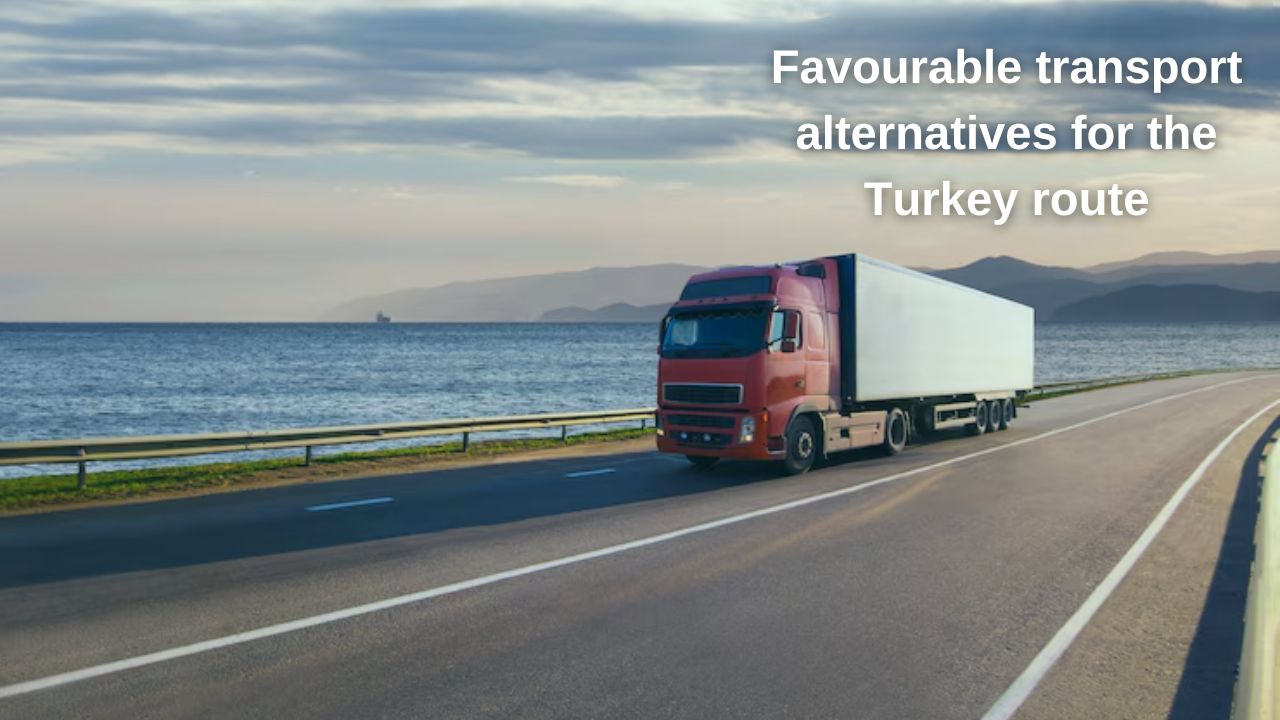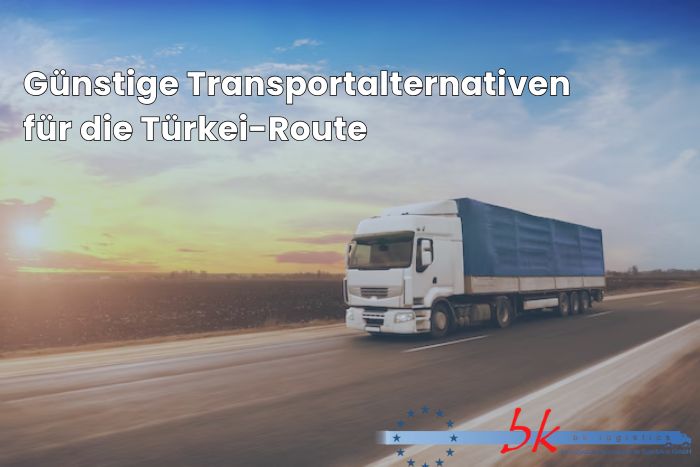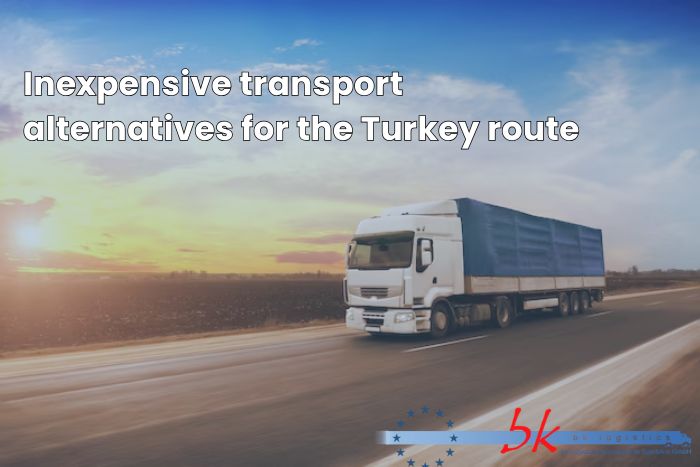News
Convenient Transport Alternatives for Turkey Route
Contents
-
Transport Needs on the Türkiye Route
-
Road Transport: Flexibility and Expansion
-
Sea Freight: Economical Option for Large-Volume Cargo
-
Rail Transport: Safe and Eco-Friendly Approach
-
Air Freight: The Price of Speed
-
Combined Transport Solutions: The Best Cost-Performance Ratio
-
Ways to Reduce Transport Costs
-
Benefits of Technology in Logistics
-
Importance of Alternative Routes and Route Planning
-
What to Consider When Choosing a Transport Company
-
Risk Management in Cost-Effective Transport Options
-
Future Trends in Logistics in Türkiye
Transport Needs on the Türkiye Route
Türkiye, due to its bridging function between East and West, is an important transport route for many industries. While sectors like textiles, automotive, and food require fast and reliable transport, heavy industry and construction materials prefer transport with larger volumes. This diversity necessitates a wide range of transport options.
Cost reduction and delivery time optimization are top priorities for companies. At the same time, efficient management of each stage of the logistics chain determines the overall success of the transport. To achieve this balance on the Turkish route, transport methods should be analyzed in detail. Factors such as different product types, volume, and speed requirements should be considered.
Road Transport: Flexibility and Expansion
In Türkiye, road transport is the most commonly used mode of transport due to the geographical structure and well-developed road network. Door-to-door delivery of cargo offers great convenience to companies. Additionally, road transport is preferred because it can be organized faster than other modes of transport.
Road transport offers high flexibility; routes and delivery locations can be easily changed. It provides economical solutions for small and medium-sized enterprises. Fluctuations in fuel prices and traffic conditions are among the cost-influencing factors. Nevertheless, costs can be controlled through well-planned routes and effective logistics management.
Sea Freight: Economical Option for Large-Volume Cargo
Sea transport is a cost-effective alternative for transporting large quantities and heavy loads, especially due to the connection of Turkish ports to global trade routes. It offers cost advantages, particularly over long distances. Operational efficiency can be enhanced through the support of combined transport solutions, which continue from ports via road or rail.
However, sea transport is not recommended for urgent goods due to long delivery times. Waiting times in ports, as well as weather and sea conditions, can also affect operations. Fast and precise customs clearance is essential for the efficiency of sea transport.

Rail Transport: Safe and Eco-Friendly Approach
Rail transport offers both economic and ecological advantages. Türkiye’s growing rail infrastructure enables reliable transport over long distances. It is particularly preferred for heavy and large-volume goods. Due to its eco-friendliness, rail transport contributes to a sustainable logistics concept.
Although transport times are shorter than sea transport, they are slightly longer than road transport. Scheduled trips and regular frequency make rail indispensable in the logistics chain. Wagon capacity and proper packaging of cargo contribute to cost reduction. Risks and delays associated with this method can be minimized through good planning.
Air Freight: The Price of Speed
Air transport is the fastest transport method and is generally preferred for high-value or urgent cargo. This option for rapid delivery is also important for many industries on the Turkish route. However, air transport is more expensive than other methods and is subject to weight and volume restrictions.
Therefore, air transport is typically used for products with high added value. Although costs are high, fast delivery can achieve customer satisfaction and competitive advantages. The various services offered by freight companies provide flexibility based on needs.
Combined Transport Solutions: The Best Cost-Performance Ratio
Combined transport involves the joint use of different transport modes. The combination of road, rail, and sea transport on the Turkish route offers cost and time advantages. This method can shorten transport times and make logistics processes more efficient.
Combined transport is a preferred strategy in international trade. In this way, costs are reduced, and environmental impact is minimized. Planning and coordination processes are crucial, as the integration of different transport modes requires attention and experience.
Ways to Reduce Transport Costs
There are many strategies to reduce transport costs. The first step is to determine the optimal route for transport. Researching alternative routes and selecting based on traffic and road conditions avoids fuel consumption and time loss. Efficiency can be increased by avoiding the return of empty vehicles.
Public transport and shared logistics applications are effective methods for cost reduction. Combined transport of loads increases vehicle utilization. The use of automation and technology in warehousing and loading processes also reduces operating costs. Regular review of contracts with suppliers is also important.
Benefits of Technology in Logistics
Technology plays a significant role in modern logistics. Thanks to GPS and tracking systems, transport processes can be monitored in real-time. This enables route optimization and shortened delivery times. Planning software allows for more efficient management of logistics operations.
Digital platforms accelerate procurement processes for logistics services and increase transparency. Transport companies can thus offer competitive prices. Technology also enhances customer satisfaction through improved communication. Innovative solutions make logistics processes economical and sustainable.
Importance of Alternative Routes and Route Planning
Determining alternative routes on the Türkiye route plays a key role in cost reduction. Traffic density, road conditions, and infrastructure are factors that must be considered in route selection. Appropriate route selection saves fuel and optimizes delivery times.
At the same time, flexible planning is required to mitigate risks such as roadworks and natural disasters. Continuous route updates ensure the smooth operation of the logistics process. Proper route planning enhances companies’ competitiveness and boosts their operational success.
What to Consider When Choosing a Transport Company
Choosing a transport company is important in terms of both cost and service quality. The experience and reputation of companies in the industry should be evaluated. Additionally, the maintenance of transport vehicles, technological infrastructure, and the extent of the logistics network should be considered.
Transparency in contract terms and hidden costs are the basic criteria for long-term collaboration. Customer references and past successes also guide the selection process. Partnering with the right company minimizes risks in the transport process and offers cost advantages.
Risk Management in Cost-Effective Transport Options
In cost-effective transport solutions, risk factors must be carefully managed. Cost-effective options may involve delivery delays, damage risks, and security issues. Therefore, a risk analysis should be conducted, and appropriate insurance solutions should be prioritized.
Transparent communication and rapid problem-solving mechanisms in the logistics chain reduce the impact of risks. Additionally, implementing quality standards in loading, storage, and transport processes is critical. Risk management ensures the sustainability of cost advantages.
Future Trends in Logistics in Türkiye
Digitalization and automation are at the forefront of Türkiye’s logistics sector. Intelligent logistics systems, artificial intelligence, and data analytics enhance process efficiency. Green logistics practices promote sustainability through greater environmental awareness.
The use of electric vehicles and alternative energy sources is expected to become more widespread in the transport sector. These developments will both reduce costs and minimize the environmental impact of the sector. Türkiye is accelerating its investments in line with its goal of becoming a regional logistics hub.



